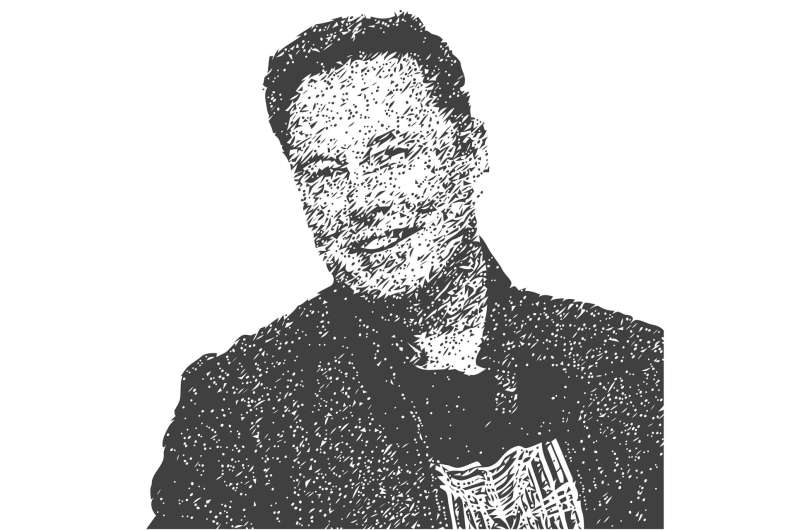
Elon Musk's team has implanted a powerful computer chip inside a living person's brain, a startling step toward a sci-fi future when we can steer computers with our thoughts.
The patient is fine. Results are promising. How do we know? Because Musk says so.
With great fanfare but disturbingly few details, his Fremont, California-based Neuralink Corp. has jumped into the perilous world of human experimentation.
The technology behind the robot-powered device, announced on Musk's X (formerly known as Twitter) with the acclaim of a SpaceX rocket launch, seems dazzling. If it matures, it could ease communication for the millions of desperate people who suffer from paralysis, stroke and other dreadful conditions.
Someday, it may offer much more, asserts Musk. It could bestow mental superpowers on healthy people, dubbed "human augmentation," by seamlessly linking our brains and computers to download knowledge and upload thoughts.
"Ultimately we will achieve symbiosis with artificial intelligence," he promised at a rare Neuralink news conference in San Francisco in 2019. "This is something that I think will be really important on a civilization-level scale."
While it's not unusual for device or drug companies to tenaciously guard their intellectual property and competitive edge, the news this week is secrecy on a whole other scale, according to a consensus of neuroscientists and bioethicists.
Neuralink issued no official statement. The company didn't respond to multiple requests for comment. No peer-reviewed papers have been published in scientific journals. Unlike most other research, the trial is not registered at ClinicalTrials.gov, an online repository curated by the U.S. National Institutes of Health. There's no disclosure about how the company defines or measures success.
We don't know if the patient is a Bay Area resident, their type of disability or where the surgery was performed. Its only source of public information is a study brochure on the company's website.
Until this week, the company's most notable public announcement was a YouTube video of a treated monkey playing the 1970s video game Pong solely with its mind. It ignited the internet with 6.6 million views.
The secrecy worries the research community, which has long advocated for accountability.
"This is not like a product launch, We're talking about human experiments here," said McGill University's Jonathan Kimmelman, who studies the introduction of novel medical technologies.
"Once you've entered the realm of doing human research, you now have a set of expectations and obligations. One of them is transparency," he said. "You have to be able to establish that the benefits of doing research are sufficient to outweigh the risks and burdens."
Musk's other companies, while brilliant, have run into early problems: The initial SpaceX rockets exploded into flames. Tesla recalled its initial Roadsters due to a troubled rear hub and electrical cables. The Cybertruck's vaunted "armor glass" was easily smashed. Boring Co., which promised to build one mile of tunnel in just a week, has completed only 2.4 miles in seven years. The former Twitter is facing financial trouble, and his overhaul has alienated many users.
In human experiments, failure isn't an option. Medicine is incremental and cautious; unlike tech, it doesn't move fast and break things. If a patient died in this new Phase I safety study, how would we know? While deaths must be reported to the FDA, there's no obligation for a company to announce the news.
2024 MediaNews Group, Inc. Distributed by Tribune Content Agency, LLC.
Citation: 'Linking our brains and computers': Elon Musk's controversial dive into human experimentation (2024, February 8) retrieved 8 February 2024 from https://techxplore.com/news/2024-02-linking-brains-elon-musk-controversial.html
This document is subject to copyright. Apart from any fair dealing for the purpose of private study or research, no part may be reproduced without the written permission. The content is provided for information purposes only.
